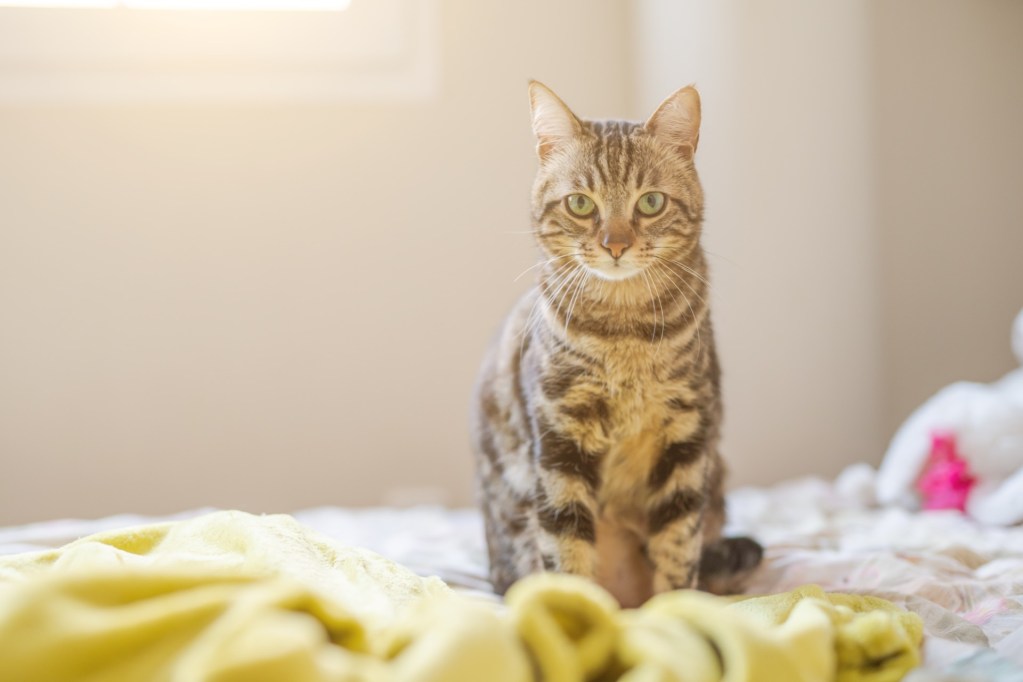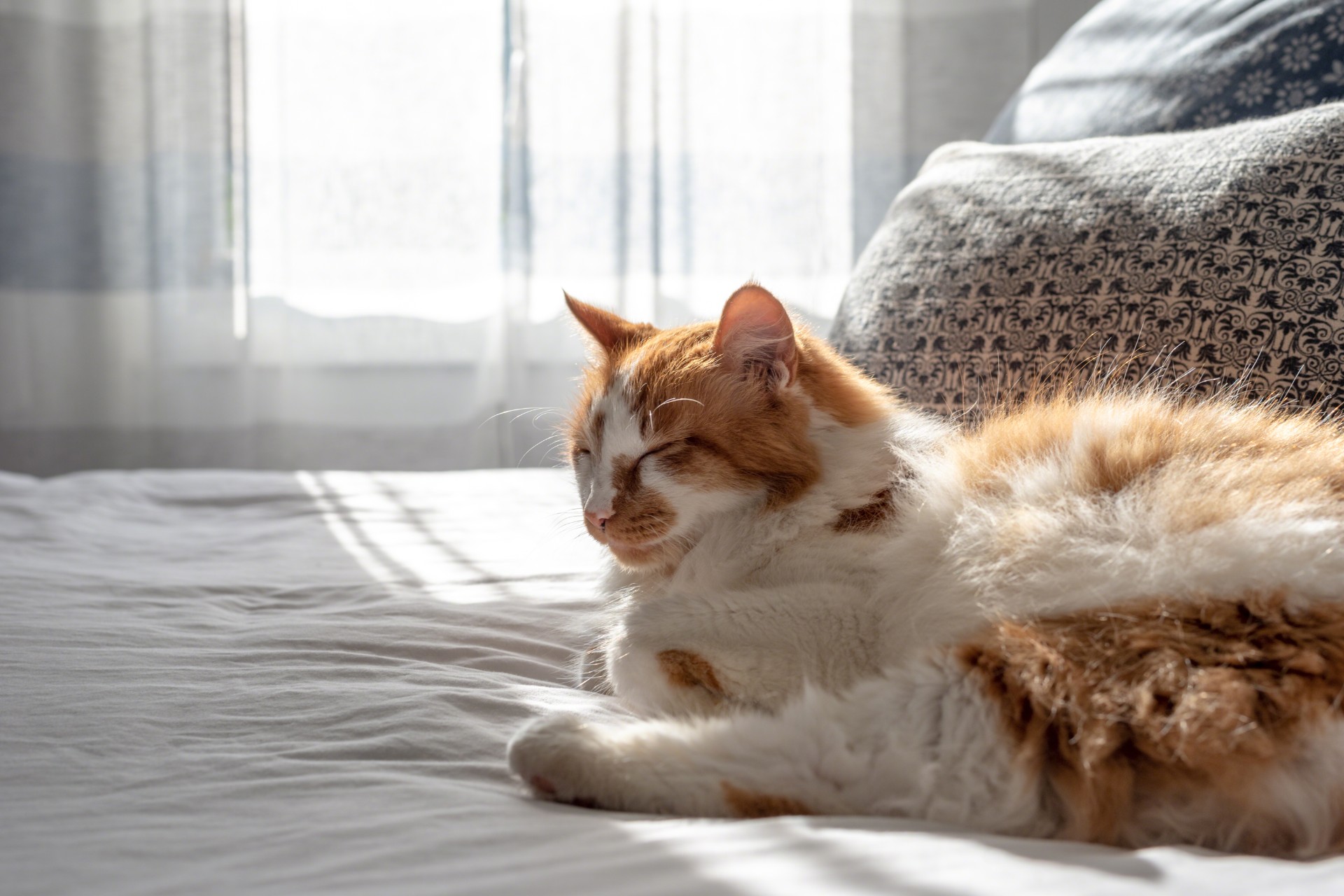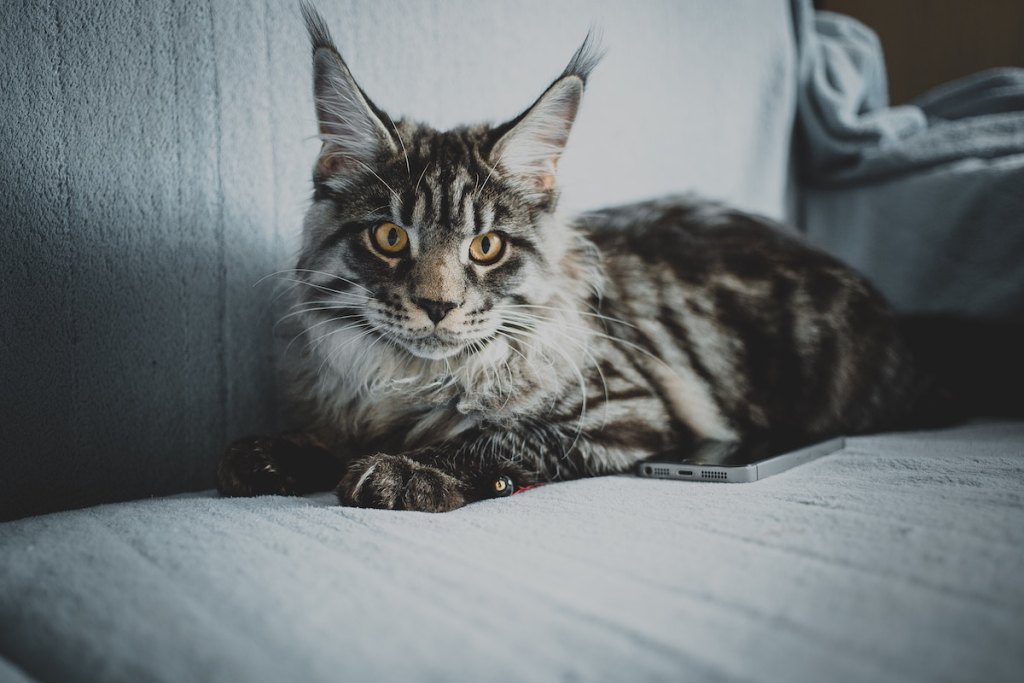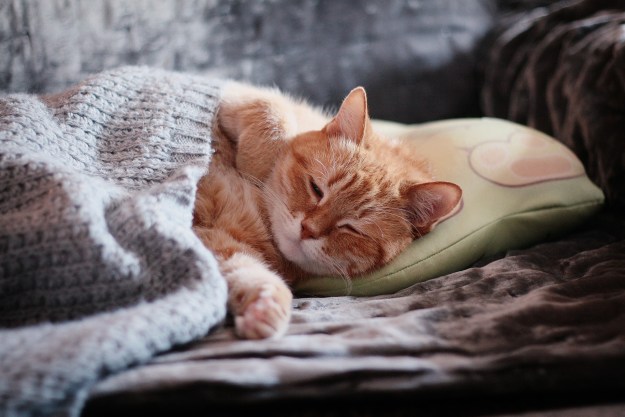
No one likes to ask, “Why is my cat peeing on my bed?” Noticing that your cat peed on your fresh-out-of-the-washing-machine sheets is of the most irritating things she can do. There are a lot of different reasons besides your cat just being a jerk that explain why she would do such a thing. Understanding the “why” will help you figure out what is really going on inside of your furry feline’s head, so you can then determine how to stop this unwanted behavior.
While many believe the primary reason cats pee on the bed is because they’re just being sassy, this is usually not the case. Read on to learn why your cat has picked up this undesirable habit and what you can do to put an end to it.

Why do cats pee on the bed?
Whether it’s related to medical issues, it’s a serious problem that you should stop your cat from doing. First, you have to determine the cause of the behavior. Some of the most common reasons cats pee on the bed include:
- An underlying medical condition. A urinary tract infection, diabetes, and kidney disease are the top three reasons your cat may have difficulty controlling its bladder. This may be the case in cats that not only urinate on your bed but also in other places besides their litter box. It’s important to bring your cat to the vet immediately if you notice this behavior.
- Stress and anxiety. When cats become overwhelmed and stressed, they sometimes use urination as a coping mechanism. Your cat may be stressed or anxious about various factors that will cause them to pee outside the litter box.
- Attachment issues. Since your natural scent fills your bed, your cat probably finds it very comforting when you’re away. If you have a kitty that doesn’t like to be apart, she may urinate on your bed to combine her scent with your scent for comfort.
- Jealousy. Adding a new cat, dog, or even a baby to the home could create jealous feelings in your cat and may cause your cat to feel threatened. She will want to mark her territory, and your bed may be the prime spot for this behavior.
- Unappealing litter box conditions. If your cat’s litter box isn’t up to her standards, she may urinate in your bed to let you know. Whether you haven’t been scooping the poop often enough or the litter box isn’t the right size, your cat will avoid the litter box entirely if she doesn’t feel comfortable using it. Cats are highly particular and might protest the litter box’s location, the type of box, and even the type of litter.
- Your cat isn’t fixed. A cat that isn’t spayed or neutered may spray and mark furniture, walls, and carpets. Your furry friend is more likely to mark surfaces than a fixed cat. In this case, the solution is easy — call your vet and schedule an appointment to get your cat spayed or neutered.

What can you do to stop your cat from peeing on the bed?
The best way to stop this behavior is to find the cause. Usually, the reason is some kind of underlying medical condition. Because of this, the first step should always be to check with your veterinarian. If your veterinarian clears your cat of any medical ailments, you can try some of these tactics to help keep your bed clean:
- Tire your cat out with long play sessions to reduce anxiety and stress.
- Prioritize cuddle time, so your cat feels loved and secure.
- Ensure your cat’s litter box is always clean.
- Try out new litter boxes and litter box locations to provide the perfect conditions for your cat.
- Find any outside stressors that may be causing your cat anxiety.
- Make the bed an unattractive place with unappealing scents or a scat mat.
- Encourage litter box use with treats as positive reinforcement.

What not to do if your cat pees on your bed
You’ve probably heard the same not-so-helpful advice we all have heard: “Just rub her nose in it. That will make her stop.” Contrary to popular belief, yelling at your cat, spraying your cat with a bit of water, or rubbing her nose in her mess won’t actually improve her behavior. It could even make things worse. If your cat is urinating outside the litter box due to stressors, making her more fearful will only cause her behavior to continue. When in doubt, your best course of action is to consult a veterinarian.
Answering the question, “Why does my cat pee on my bed?” is just the first step. In addition to addressing the specific issue causing your cat to pee on the bed, you’ll need to take steps to help your kitty “reset.” Start by thoroughly cleaning your bedding, so it no longer smells like pee.
While it’s often recommended to cover your bed in plastic because cats hate the texture, veterinarians strongly caution against doing so. Leaving your cat unattended with plastic tarps, bags, or shower curtains can have severe consequences, as your cat may ingest some of the plastic, leading to intestinal blockages, or she could even suffocate if she becomes tangled. Instead, you can retrain your cat to associate the bed with bonding time and food. Make sure you cuddle your cat and feed her treats in bed. Because cats are averse to urinating where they eat, teaching your fur baby that your bed is a place for snuggling and snacking will teach her not to treat your mattress as her litter box.
Underlying medical conditions or stress can cause your cat to urinate on your bed. While this behavior is frustrating, unsanitary, and pretty gross, it can signify that your cat needs help. If this behavior arises, bringing your cat to the veterinarian for further diagnosis is essential. It may be the most effective way to resolve the issue. If your cat has no medical problems, this type of activity could simply be a behavioral issue that needs addressing. Either way, getting to the bottom of your cat’s inappropriate urination will ensure a healthier and happier home for both of you.
Editors' Recommendations
- Wondering why cats chirp? Fascinating reasons why your cat chirps at birds (and you)
- How to cat-proof your balcony before the unthinkable happens
- There’s a totally normal reason cats throw up after eating grass – here’s why
- Why doesn’t my cat meow? Here are 5 reasons why your feline friend is silent
- Is your cat hissing and growling a lot? These 5 tips will work wonders on your feline friend


